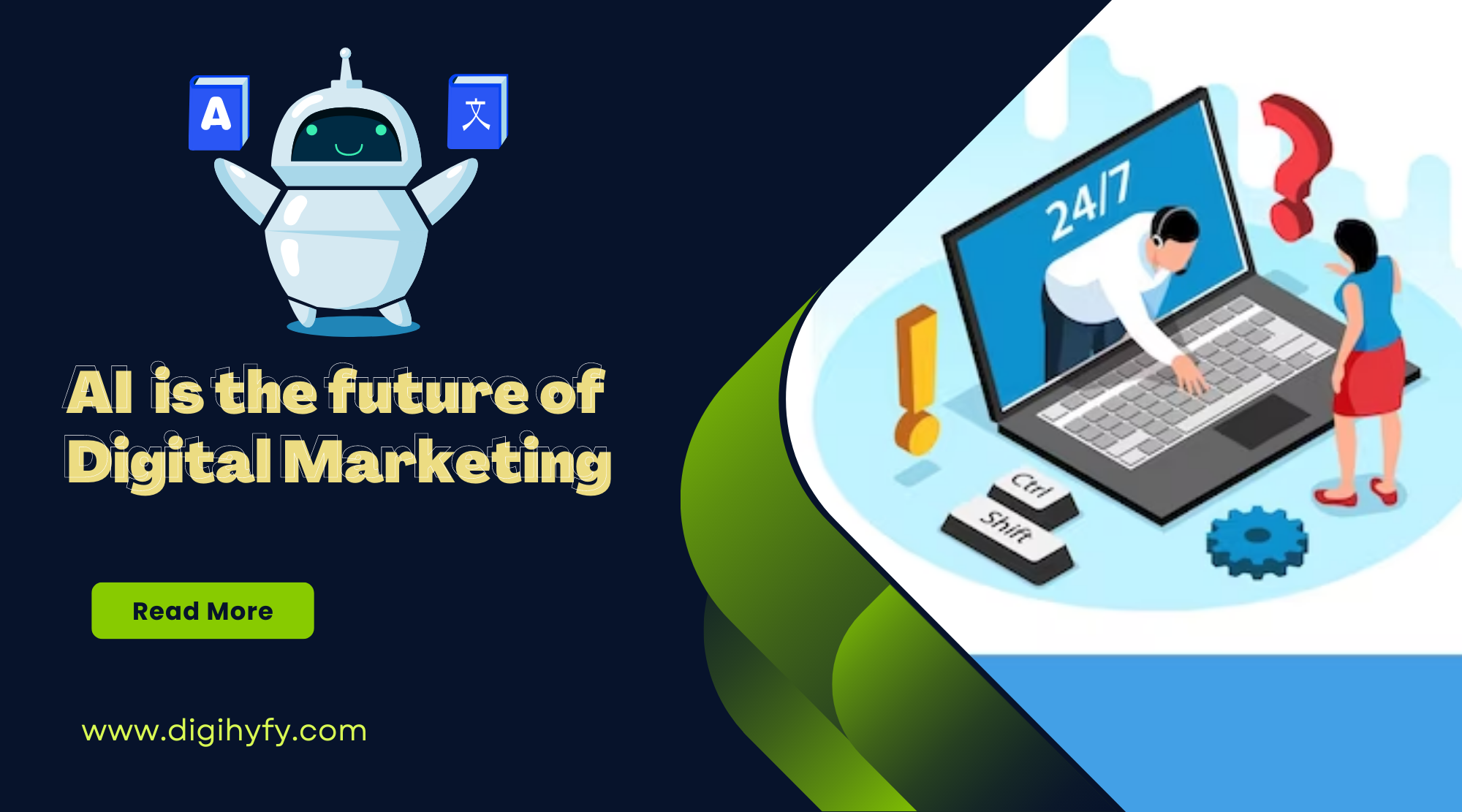
AI is the future of Digital Marketing
AI is playing a significant role in shaping the future of digital marketing. It offers a wide range of tools and techniques that can enhance marketing strategies, improve customer experiences, and drive better business outcomes. Here are some ways AI is influencing digital marketing:
Data analysis and insights: AI enables marketers to process and analyze large volumes of data quickly and efficiently. It can identify patterns, trends, and correlations that humans might miss. This helps marketers gain valuable insights into customer behavior, preferences, and buying patterns, enabling them to make data-driven decisions.
Personalization and customer targeting: AI-powered algorithms can collect and analyze customer data to create personalized marketing campaigns. AI can deliver targeted information, product recommendations, and offers to customers by learning their unique tastes and behaviors. These results increase customer engagement and conversion.
Chatbots and virtual assistants: AI-powered chatbots and virtual assistants are transforming customer interactions. They can assist in the purchasing process, make personalized advice, and respond quickly to client inquiries. Chatbots improve customer service by offering 24/7 support and reducing response times, leading to enhanced customer satisfaction.
Content creation and curation: AI algorithms can generate content, such as blog posts, social media updates, and product descriptions, based on predefined parameters and data inputs. AI can also curate content by analyzing enormous quantities of data and presenting users with timely and relevant content, increasing engagement and brand loyalty.
Predictive analytics and forecasting: AI algorithms can analyze historical data and customer behavior to make predictions about future trends and outcomes. Marketers can leverage predictive analytics to optimize pricing, forecast demand, identify potential churn, and allocate resources more effectively.
Ad targeting and optimization: AI algorithms can analyze user behavior, demographics, and preferences to optimize ad targeting. By delivering ads to the right audience at the right time, AI improves ad relevance, click-through rates, and conversion rates. AI can also automate ad campaign optimization by continuously monitoring performance and making adjustments in real-time.
Voice search and optimization: With the rise of voice-activated virtual assistants like Siri, Alexa, and Google Assistant, AI is crucial for voice search optimization. Marketers need to adapt their SEO strategies to account for voice-based queries and ensure their content is optimized for natural language processing algorithms.
Social media monitoring and sentiment analysis: AI-powered tools can monitor social media platforms, analyze user sentiments, and track brand mentions. This helps marketers understand customer perceptions, identify emerging trends, and manage online reputation more effectively.
Advertising and media buying: AI has transformed digital advertising and media buying processes. Programmatic advertising platforms use AI algorithms to automate and optimize ad placements in real-time. AI can analyze user behavior and preferences, identify the most relevant ad placements, and deliver personalized advertisements at the right time and on the right channels. This improves ad targeting, increases conversion rates, and maximizes return on ad spend.
While AI offers numerous benefits to digital marketing, it’s important to note that ethical considerations, privacy concerns, and transparency in data usage should also be taken into account. Striking the right balance between automation and human touch is crucial to ensure effective and ethical AI implementation in digital marketing strategies.
Overall, AI is revolutionizing digital marketing by enabling marketers to leverage data-driven insights, enhance customer experiences, automate repetitive tasks, and improve campaign targeting and optimization. It empowers marketers to deliver more personalized and relevant content, resulting in increased customer engagement, loyalty, and business growth.